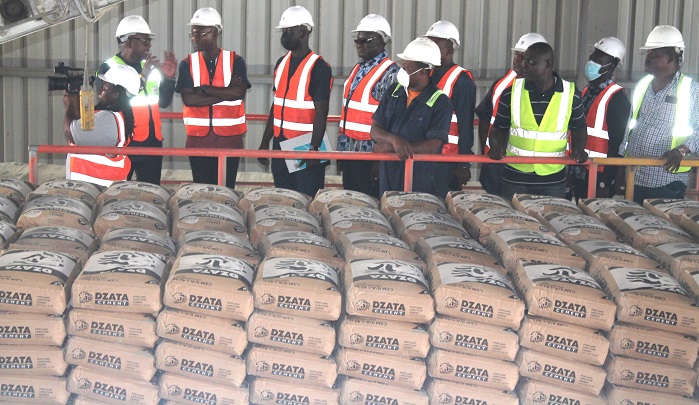The government is in discussions with cement manufacturing companies in the country for the provision of discounted cement for the implementation of its affordable housing programme.
Minister of Works and Housing, Francis Asenso-Boakye, who disclosed this, said the success or failure of the programme would, among other things, depend on the ability of the companies to provide adequate supply of the cement and at affordable rates.
He was speaking at Tema yesterday during a tour of some cement companies operating within the enclave.
The minister toured the Diamond Cement Group, GHACEM Limited and Dzata Cement with his entourage.
As a major component of housing construction, Mr Asenso-Boakye said the importance of adequate supply and affordability of cement to help in the implementation of the housing programme could not be over-emphasised.
He indicated the government’s desire to partner with the cement companies in the delivery of the national affordable housing programme.
As a way of ensuring affordability, he said the government was working to propose a specified selling price for the cement to reduce cost of construction.
“We are also seeking to explore opportunities to pin a specified selling price for the cement for the National Affordable Housing Programme as part of efforts to minimise the cost of construction and increase the affordability of the housing units,” the Minister stated.
He asked the companies to consider opportunities to expand the production capacities for known local building materials such as the Pozzolana cement and explore the use of other locally available materials in production.
“Available literature has shown that approximately US$350 million is spent annually to import about 85 per cent of raw materials to produce cement.
Furthermore, it has been established that up to US$30 million can be saved on the importation of these materials by increasing the production and use of pozzolana cement,” Mr Asenso-Boakye added.
Financial Controller of Diamond Cement Ghana Limited, N. Venkatesh enumerated some challenges including high import charges and short supply of limestone which were crippling the cement manufacturing industry.
He asked the government to help deal with the influx of foreign produced cement which was resulting in excessive supply, and disrupting industry competition.
Stefano Gallini, Chief Executive of GHACEM, said as a customer-oriented company, GHACEM was committed to working with the government to produce customized products for the programme.
As a wholly-owned Ghanaian company, Nana Philip Archer, Managing Director of Dzata Cement, said the company would align its operations with the government’s policies to address housing challenges in the country.
 info@businessghana.com
info@businessghana.com





















